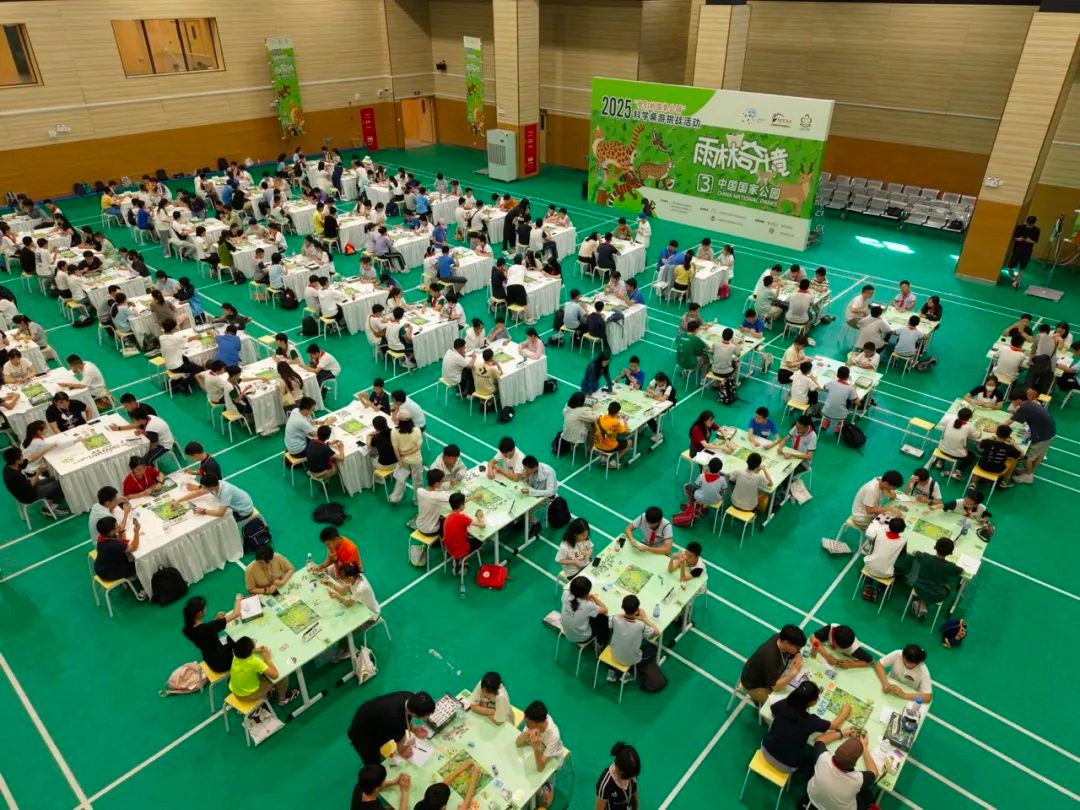The 2nd “Our National Parks” Science Board Game Challenge Kicks Off a Journey of Nature Exploration through “Learning by Playing”

On July 3, 2025, the 2nd “Our National Parks” Science Board Game Challenge was successfully held at Shanghai Normal University Affiliated Hongkou Middle School. The event was jointly organized by the Science Communication Center of SSTM, the Shanghai Science and Art Education Center, and the Hongkou District Education Bureau, and co-hosted by the Hongkou District Youth Activity Center and the school. The event was supported by the Tencent Charity Foundation and East China Normal University. Over 600 primary and secondary school students from all 16 districts of Shanghai participated in the competition.
Using three original science-themed board games developed by SSTM, the challenge broke away from conventional forms of science education such as static exhibitions or textbook-based teaching. By deeply integrating scientific concepts with game mechanics, it enabled participants to truly learn science by playing.
The three board games in the “China’s National Parks Series,” namely Giant Panda National Park, White Crown of the Highland, and Rainforest Wonders, were designed respectively for lower-grade primary students, upper-grade primary students, and junior high school students. Each game was tailored to the cognitive characteristics and scientific comprehension levels of different age groups. Participants acted as national park guardians, engaging in strategic thinking in response to complex ecosystem scenarios and learning to adapt to constantly changing simulated environments.
Guided by the interactive mechanisms of the games, students gradually developed a holistic mode of thinking centered on ecosystems, and naturally formed a scientific understanding rooted in “systematicity,” “dynamics,” and “interdependence.” The purpose of the event was not to select the “strongest player,” but rather to encourage students to reflect deeply on the operational logic and scientific principles of ecosystems through decision-making based on the rules of the games.
In the future, more activities that combine scientific value, playability, and educational significance will serve as a bridge between schools and society, helping young people grow into scientific learners with systems thinking and ecological awareness.






